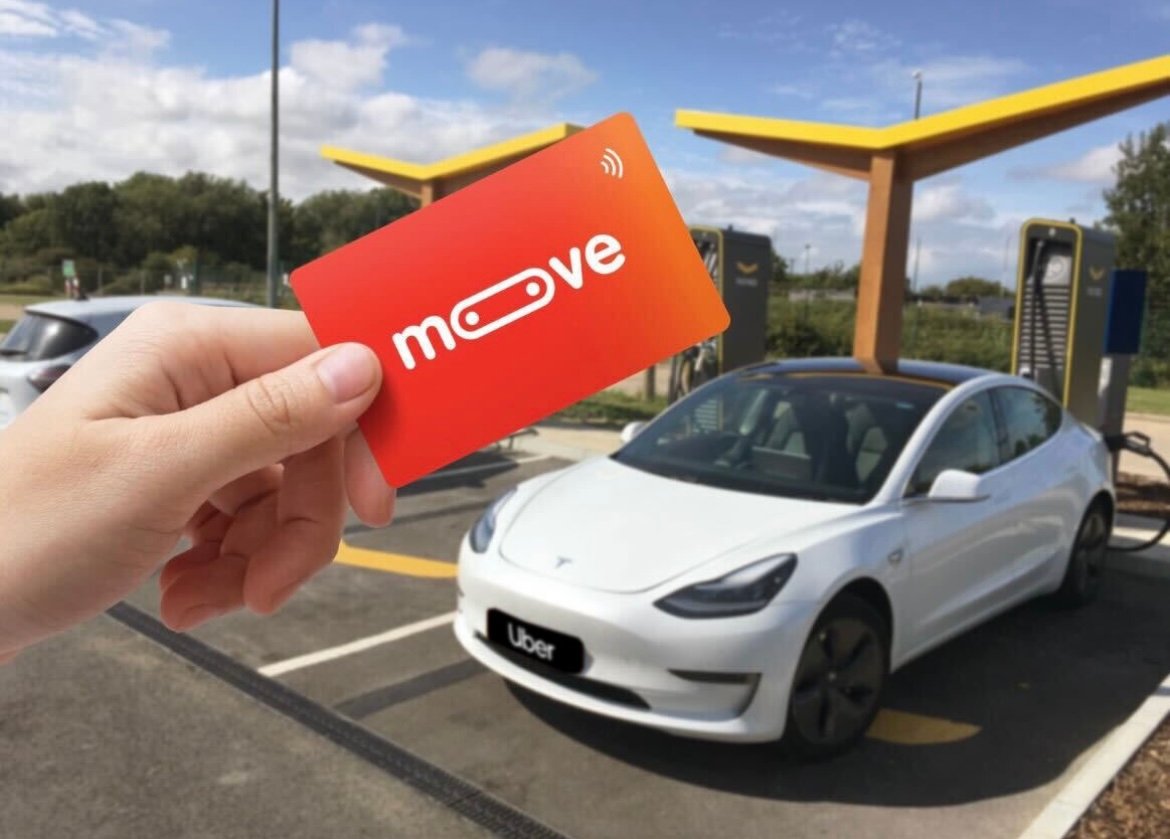Moove, an African mobility fintech that offers vehicle financing to ride-hailing and delivery app drivers, has officially announced that it has secured a whopping $100 million in a recent funding round. This achievement marks a significant milestone for the company as it prepares to expand its operations to new markets.
The leading investor for this round remains unnamed, but sources close to the deal have confirmed that it is none other than ride-hailing giant, Uber. This marks the first time Uber has invested in a startup based in Africa, solidifying its commitment to the continent.
Joining Uber in this funding round are other major investors such as Mubadala, a sovereign wealth fund, and a host of other participants. With this new capital, Moove’s post-money valuation now stands at a remarkable $750 million, a significant increase from the $550 million it raised last year in an equity and debt round also led by Mubadala.
The company has now raised a total of $250 million in equity and $210 million in debt since its inception.
Moove’s main objective for this funding is to support its expansion plans into new markets. Currently, the company operates in six different markets across 13 cities, including Nigeria, South Africa, Ghana, the U.K., India, and the UAE. However, with the newly acquired funds, Moove aims to expand its revenue-based vehicle financing platform to a total of 16 markets by the end of 2025.
To achieve this goal, Moove takes a two-pronged approach to vehicle financing. First, the company purchases fleets of vehicles that are then sold to drivers through its platform. Secondly, Moove provides financing options for drivers through a credit-scoring system, allowing them to purchase new vehicles for various purposes such as ride-hailing, logistics, and deliveries. The vehicles offered by Moove range from traditional car models to electric vehicles like Teslas.
One of the unique features of Moove’s financing model is that a percentage of the driver’s weekly income is automatically deducted and put towards their vehicle payments, ensuring a hassle-free repayment plan.
Uber’s investment in Moove is a strong indication of the company’s commitment to maintaining a steady supply of drivers for its ride-hailing platform. Ladi Delano, co-CEO of Moove, sees this investment as a validation of their business model and hopes it strengthens the strategic relationship between the two companies.
Aside from Moove’s partnership with Uber, it also has strategic collaborations with other gig networks such as SWVL and Kobo.
Uber’s investment in Moove also aligns with its pledge to have a fully zero-emission fleet by 2040. This focus on electric vehicles has also become a key part of Moove’s strategy, especially since its expansion into new markets in 2021. The company currently operates large EV fleets in the UAE and the U.K and is currently piloting an EV product line in India with plans to introduce more than 20,000 EVs for Uber.
Commenting on this development, Moove stated in a press release that a significant portion of its expansion plans will focus on promoting the use of electric vehicles, citing its contribution to building a more sustainable and accessible mobility ecosystem for customers around the world. However, customers in Africa may experience some delays in participating in this initiative.
Originally, Moove had high hopes of introducing its EV product line in Africa. In a 2021 interview, Delano outlined the company’s strategy, which included purchasing new EV cars at discounted prices and selling them at lower prices in the region. However, certain challenges, such as poor road conditions and a lack of proper charging infrastructure for electric vehicles, might have caused Moove to revise its original plan. As a result, the company is now considering natural gas vehicles as an alternative solution.
“While we aim to be at the forefront of electrification in the U.K. and UAE by putting more EVs on the road, our goal is to be the leader in transitioning from traditional ICE engines to compressed natural gas (CNG) vehicles, and eventually to EVs,” said Delano in a recent call with TechCrunch. “We are currently in the process of preparing the Nigerian market for this transition, hoping to mitigate the impact of increasing fuel prices on our customers’ bottom line.”
This sudden shift towards CNG vehicles comes in the wake of significant challenges faced by Moove drivers in Nigeria, such as rising fuel prices and exchange rate fluctuations. While these drivers rely on Moove to provide a source of income, these macroeconomic conditions have put a strain on them, with some staging protests against the company’s weekly remittance system, which they claim adds more stress than relief.
Delano, however, stressed that Moove has been actively working to address these challenges while maintaining profitability. Some of the initiatives introduced by the company in response to these issues include offering fuel subsidy plans during price hikes, reducing weekly remittances by 33%, and providing flexible payment options for customers. For instance, customers can now extend their repayment period from 48 months to 50 or 60 months, ensuring that the overall cost remains affordable on a weekly basis.
Despite facing numerous challenges in the Nigerian market, Delano confirmed that the country is no longer Moove’s largest market in terms of customers. However, when asked about the possibility of the company exiting the market due to these ongoing macroeconomic challenges, Delano stated that it is highly unlikely. According to him, the founding mission of Moove, which is to provide accessible vehicle financing and create employment opportunities and income for drivers in Africa, remains the company’s driving force.
“When we started our business, Nigeria had positive unit economics, but due to various macroeconomic factors, those economics have changed,” said Delano. “However, we firmly believe that we can return to positive unit economics in the near future, and we remain committed to supporting our customers and weathering these daily shocks.”
Moove has adopted a diversification approach to fuel its expansion strategy and minimize risks. In addition to expanding to various countries, the company has also diversified its market categories by targeting ride-hailing, logistics, mass transit, and instant delivery platforms. And, it appears that Moove is also collaborating with Uber’s main competitor in emerging markets, Bolt, to provide more options for its clients. However, details of this partnership and its implementation remain unclear, considering Moove’s existing partnership with Uber.
Delano refrained from providing any details but did mention that the company has established multiple partnerships with different marketplaces worldwide, providing customers with a wider range of options. However, he also emphasized that it takes time to operationalize these partnerships fully.
This recent funding round marks a year of significant growth for Moove, which also enjoys support from top-tier investors such as Left Lane Capital and European VC Speedinvest. In just one year, the company has experienced tremendous growth, increasing its customer base from 15,000 to over 20,000 and facilitating over 30 million trips across its six markets. Its annual recurring revenue has also grown from $90 million to $115 million, and the company is on track to achieve profitability in the upcoming financial year.
As part of its expansion plans, Moove, in partnership with Mubadala, has moved its headquarters to the UAE. This move is strategic for Moove, as the country was the first to introduce the company’s fully integrated charging solution, and it also recorded the highest number of EV trips for Uber in 2023. Delano also revealed that the company plans to strengthen its investments in the UAE and other markets across Africa, Europe, and Asia while expanding to Southeast Asia and Latin America in the coming months.
“We believe in the potential of the African market and our business within it, and we will continue investing accordingly,” said Delano. “However, it is crucial for these investments to be profitable. Additionally, we will continue to explore opportunities globally and expand into markets where we see a clear path to profitability and positive unit economics.”








